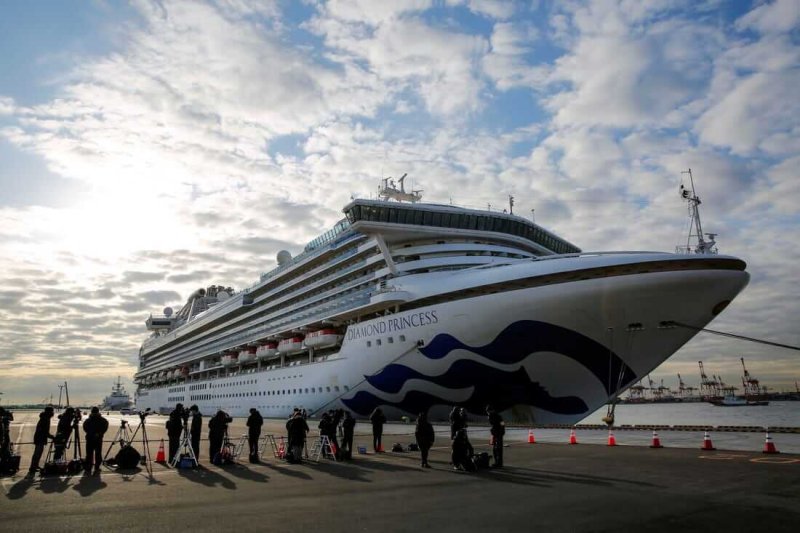The news: There were still traces of coronavirus on the Diamond Princess cruise ship 17 days after it emptied of passengers, according to a new study by the US Centers for Disease Control and Prevention. The finding suggests the virus can persist on surfaces for a lot longer than previously thought. A study published in the New England Journal of Medicine earlier this month said the coronavirus survives in the air for several hours and could last on steel and plastic for at least three days.
The latest study: Researchers examined the Diamond Princess, a cruise ship that was quarantined off Yokohama in Japan last month, and found coronavirus RNA—genetic material—in the cabins of infected passengers up to 17 days after the ship was vacated but before it had been disinfected. However, the CDC noted, “viral RNA doesn’t necessarily mean live virus was present.” So we can’t say for sure whether people would have been infected if they had come into contact with the surfaces where the virus was found.
What this means: Properly cleaning and disinfecting surfaces will kill coronavirus. More research is needed before we can draw firm conclusions about exactly how long the virus can survive on uncleaned surfaces, and what level of risk it poses over time.































